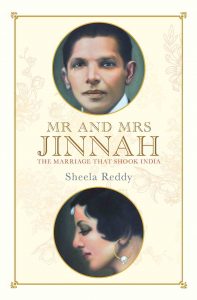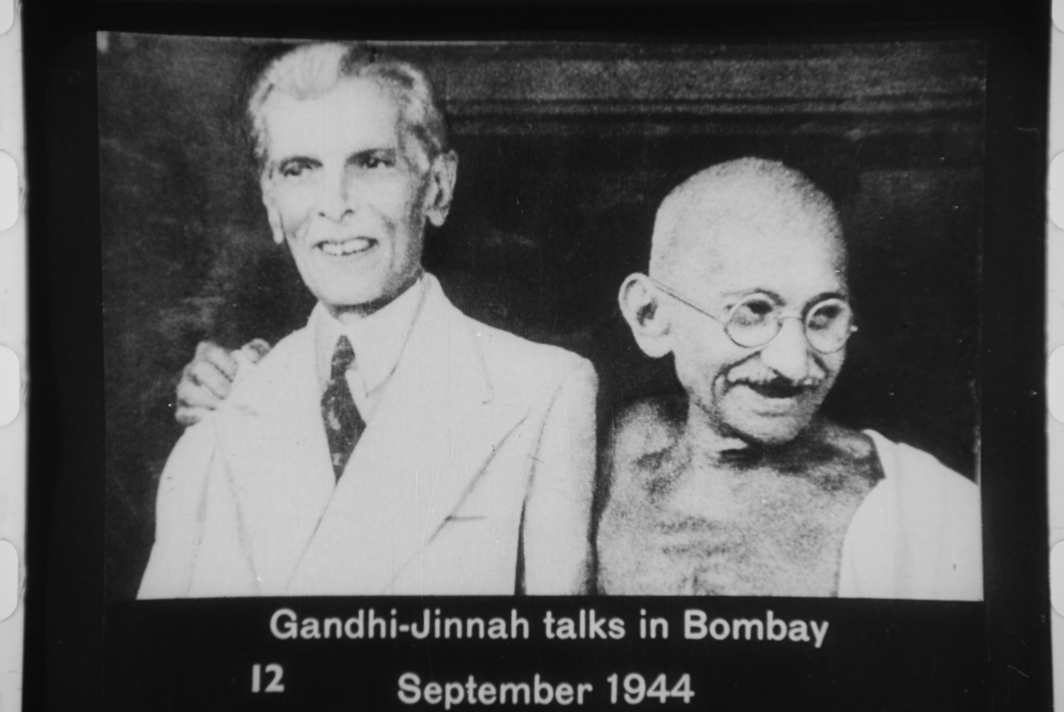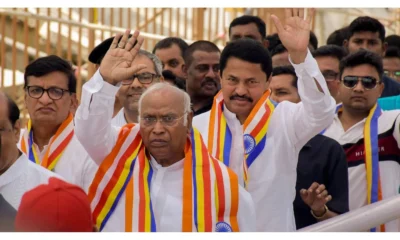[vc_row][vc_column][vc_column_text]Sheela Reddy’s book on his traumatic personal life is also a revisionist look at the man better known as the Mahatma
By Binoo K John
In India’s nationalistic narrative Mohammed Ali Jinnah never got the place he deserved which was totally usurped by Mohandas Gandhi. Few nationalist historians have dared to cast a cynical look at Gandhi’s life and machinations and almost all of them have chosen to paper over the many warts in Gandhi’s personal, professional and nationalistic life.
In that sense senior journalist Sheela Reddy’s recently-published Mr and Mrs Jinnah (Penguin) is a welcome relief and offers a daring and clinical insight intothe life of two of the national movement’s biggest stalwarts. The book’s focus is on Jinnah’s traumatic married life to Ruttie, the teenaged daughter of a Parsi upper class family of Mumbai but often the author casts a bright light into deliberately darkened areas of Gandhi’s life which we opted not to see or dwell upon for long. Such acts of Gandhi might be worth a relook.
 After all that we have read about Gandhi’s conciliatory attitude towards minorities in the later part of the national movement, his early hatred and suspicion of Muslims is shocking even now as we read it in this book. When Motilal Nehru’s elder daughter Nan fell in love with Syud Hossain, an aristocratic and dashing young Muslim who was editor of Independent and thus had free access to Anand Bhawan, all hell broke loose. In that chaotic and liberal household, where Muslims were considered part of the family, it is no wonder that the beautiful Nan and the attractive Syud fell in love and were almost living together. Motilal espoused liberalism and modernity but when it came to his daughter marrying a Muslim he wavered. Unlike a liberal Motilal had betrothed her to another Hindu aristocrat’s son when she was just 12 or 13 but Nan, the carefree daughter of a liberal household, had other ideas. She thought that marrying Syud wouldn’t pose any problems in that ‘modern’ household.
After all that we have read about Gandhi’s conciliatory attitude towards minorities in the later part of the national movement, his early hatred and suspicion of Muslims is shocking even now as we read it in this book. When Motilal Nehru’s elder daughter Nan fell in love with Syud Hossain, an aristocratic and dashing young Muslim who was editor of Independent and thus had free access to Anand Bhawan, all hell broke loose. In that chaotic and liberal household, where Muslims were considered part of the family, it is no wonder that the beautiful Nan and the attractive Syud fell in love and were almost living together. Motilal espoused liberalism and modernity but when it came to his daughter marrying a Muslim he wavered. Unlike a liberal Motilal had betrothed her to another Hindu aristocrat’s son when she was just 12 or 13 but Nan, the carefree daughter of a liberal household, had other ideas. She thought that marrying Syud wouldn’t pose any problems in that ‘modern’ household.
After their affair became known, Nan was promptly despatched to Gandhi’s ashram for a cleansing ritual and for dissuading her from marrying a Muslim. Gandhi ran the ashram like a prison and had “bizarre and primeval” rituals. Ashramites lives in utter fear of Gandhi. Gandhi had by then brutally punished a young lady who had fallen in love with another ashramite (not a Muslim) and personally cut off the girl’s beautiful long silky hair, an act which can today be considered criminal.
As part of Nan’s cleansing and ‘cultural reorientation’ Gandhi lectured the sister of the future prime minister about the evil nature of Muslims. She wrote: “He told me when I was at the ashram that this event (Syud affair) had shaken his belief in Mussalmans… what right had you to allow yourself even for a minute to look with love at a Mussalman.” Then later. “Out of nearly 20 crores of Hindus couldn’t you find a single one who came up to your ideals—but you must needs pass them all over and throw yourself into the arms of a Mohammeddan!!!” Nan who was nonplussed by all this wrote: “Poor man! To him it is inconceivable for a Hindu and Mussalman to marry and live happily.”
This statement by Nan about Gandhi’s real beliefs about Muslims can still shock us. Gandhi later confronted Syud and asked him how he dared make love to a Hindu girl who he ought to have looked upon as a sister. Syud, rather flummoxed, said: “Well, I did look upon her as a sister in the beginning.” Neither Syud nor Nan was ever taught to look at people as Hindu, Muslim or Christian. It was Gandhi who tried to ingrain this thought into them.
In fact, Reddy points out in detail that all the characters in the early part of the anti-colonial movement were brought up in extremely liberal, modern atmospheres and most of them rebelled against brahmanical social mores. Aghorenath Chattapadhyay, father of Sarojini Naidu, for instance, flung his sacred thread into the Ganges at 14, to rebel against caste. Brought up in an entirely cosmopolitan atmosphere, Sarojini claimed proudly that theirs “was a home of Indians and not of Hindus or Brahmins”. Compared to all this, Gandhi’s ashram was a patriarchal heaven, a medieval, casteist monastery where ashramites were regularly chastised on moral, religious grounds.
Compared to Gandhi’s overtly Hindu and monastic attitude infused with vague notions of celibacy and vegetarianism, Jinnah was completely modern, secular, liberal and had a worldview which now looks similar to that of Nehru. Jinnah completely ignored or rebelled against his own Muslim Khoja orthodoxy and superstitions. “He not only defiantly dressed like a British gentleman but openly smoked, drank, ate pork and, more seriously, insisted on putting his sister into a convent boarding school despite opposition from his community”, Reddy writes.
Jinnah’s later move towards the Muslim right was largely due to the opposition he faced from Gandhi within the Congress and, of course, other pro-Hindu factions like the Hindu Mahasabha, etc. Jinnah, as is known, had made various attempts to bring the Muslim League close to the Congress but was rebutted by the government and also by Gandhi on various occasions. In 1915, for instance, Jinnah brought the Muslim League close to the Congress by holding the session at the same time as the Congress’s in Bombay, but the proceedings were disrupted.
All details of the Gandhi-Jinnah conflict are known but Jinnah’s role in trying to bring together a Hindu-Muslim political conciliation has been underplayed. Jinnah’s Delhi Proposals were accepted by the Congress but was fiercely opposed by the Hindu Mahasabha at the all-party conference. “Jinnah’s personality dominated both the issues in the Assembly and in the All Parties Conference. Never have I admired him more than now. What dignity and courage in the midst of suffering—what patience, persuasion and real statesmanship he showed during the most trying period of the prolonged conference,” Sarojini Naidu wrote in February1928 when she was in the inner circles of the Congress.
In contrast, such glowing references to Gandhi by senior Congress leaders are rare to find. In fact, during the early phase of the struggle it was Jinnah who had the guts to take the British head on while Gandhi was extremely conciliatory. Once Jinnah joined the anti-Rowlatt agitation led by Gandhi, he resigned from the assembly and plunged headlong into it. “It was Jinnah whom the government feared, considering him a far more dangerous power centre than Gandhi. Unlike Gandhi who sent out mixed signals about his approach to the British government, even volunteering to recruit Indian soldiers for the War effort without placing any conditions, Jinnah took on the British frontally,” Reddy writes.
Gandhi saw in Jinnah both a threat and a rival, so treated him with disdain. Once when Jinnah wrote him a nice letter from abroad asking Gandhi for news about political developments, Gandhi gave him gratuitous advice suggesting that he learn Gujarati and Hindi and asking Ruttie be sent to spinning classes!
Reddy’s book is evidence that in our nationalistic pride and hurt about the formation of Pakistan we failed to properly understand the role that Jinnah had played in trying for a united Muslim-Hindu political unity, before he was pushed to a corner and went the other way. Reddy’s book is a serious attempt to look dispassionately at the role that Jinnah played and for once keep Gandhi aside in the narrative of the national movement, so that a we can get a better view of Jinnah the man and leader, minus the blinkers.[/vc_column_text][/vc_column][/vc_row]


 India News23 hours ago
India News23 hours ago
 Latest world news23 hours ago
Latest world news23 hours ago
 Latest world news8 hours ago
Latest world news8 hours ago
 Latest world news8 hours ago
Latest world news8 hours ago
 India News8 hours ago
India News8 hours ago
 Latest world news8 hours ago
Latest world news8 hours ago
 India News8 hours ago
India News8 hours ago








